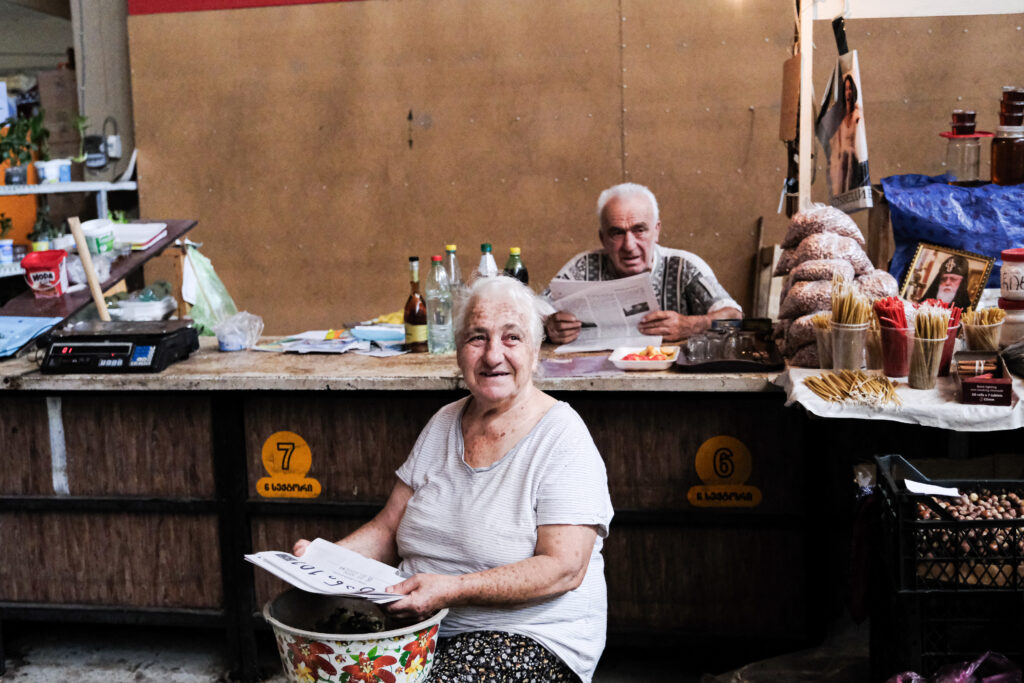Alternative Campaign of Georgia’s Prison Newspapers
It may look like an election campaign, but it’s something totally different, much smaller in resources, but with stakes that are much higher.
It happens so that Georgia’s worst political crisis in decades coincides with the dullest election campaign in recent memory – at least when it comes to the actual campaigning on the municipal level. As Georgian Dream’s repression continues, the October 4 municipal vote unfolds amid a widespread boycott and scant credible observation. Political noise, campaign-related or not, remains largely confined to the capital.
And yet, life has continued to flow from and into “the rest of the country” through an alternative channel: prison newspapers.
Hardly a weekend passes without emotionally charged scenes of parents distributing newspapers at marketplaces, on streets, in shops, and at bus stations flooding social media. For families of detained protesters, reaching Georgia’s distant corners and breaking through the small country’s ever-growing geographic alienation is more than some political strategy – it’s a vital, desperate effort to rally support to free their imprisoned sons and daughters.
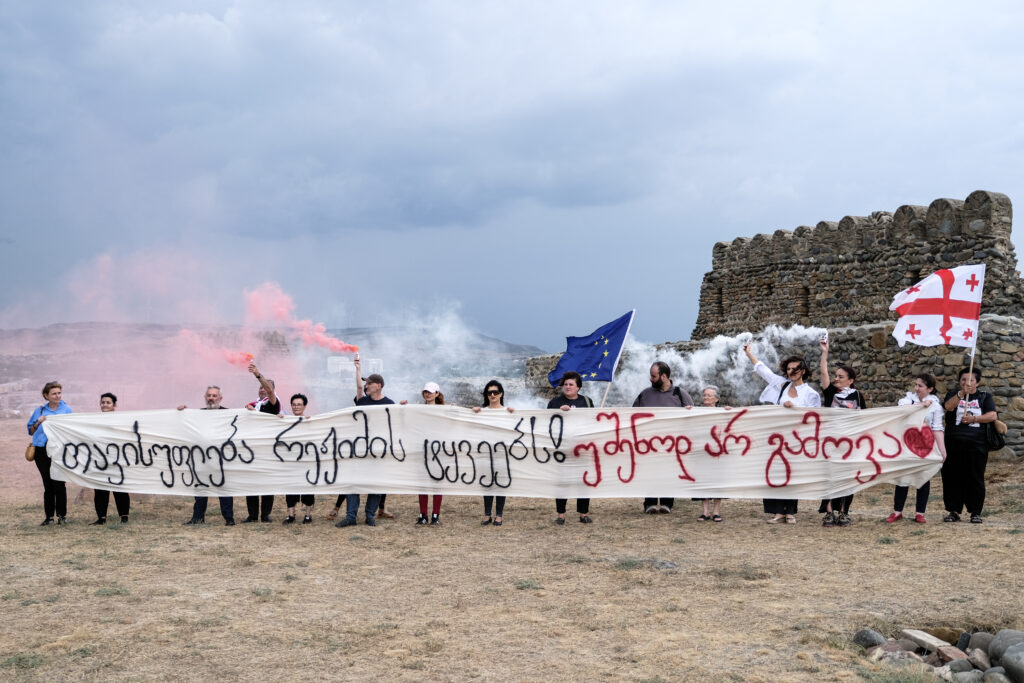
“There is much you learn through direct communication with people, about their attitudes,” says Nino Saghiridze, who has been among the photo-reporters who have accompanied the newspaper group to various destinations.
Over the past three months, the families have traveled to more than 20 towns and cities across Georgia, demonstrating a commitment and consistency that critics say is often lacking among political parties – even when the stakes are higher than ever before. More than 60 people remain behind bars in what are widely seen as politically motivated detentions of protesters, opposition figures, and other critics of the ruling Georgian Dream party.
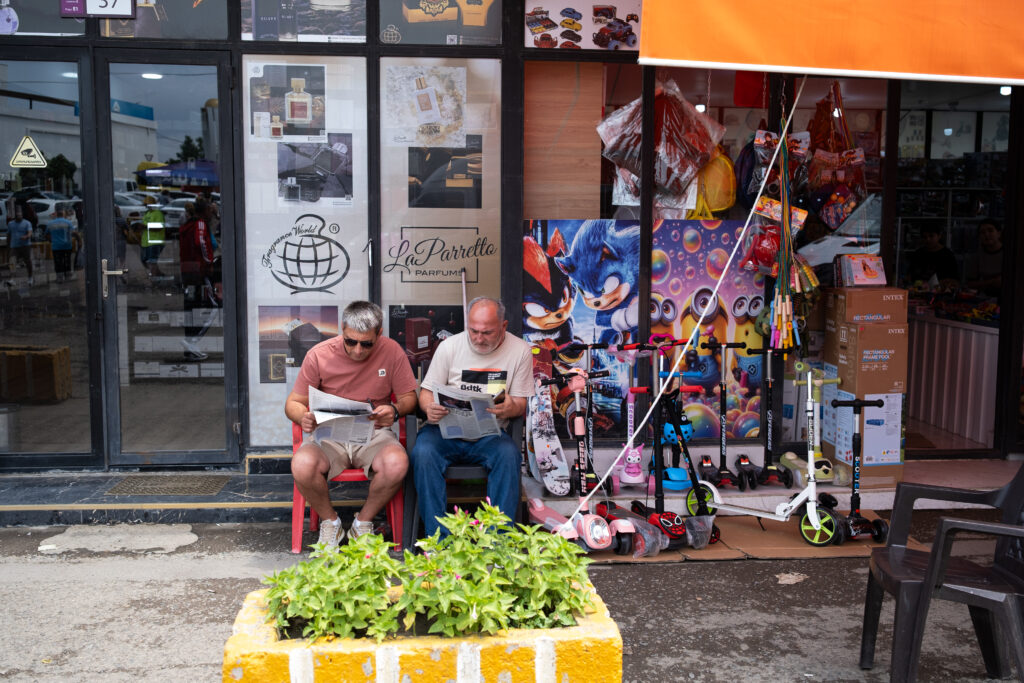
Saghiridze, a molecular biologist and full-time lab worker who turned her passion for photography into action amid protests that erupted last November, says the trips surprised her. “I did not expect the majority of people to be this sympathetic,” she says.
Contrary to the pessimistic views often heard in downtown Tbilisi, she found many people openly dissatisfied with the authorities and strongly supportive of the detainees’ parents.
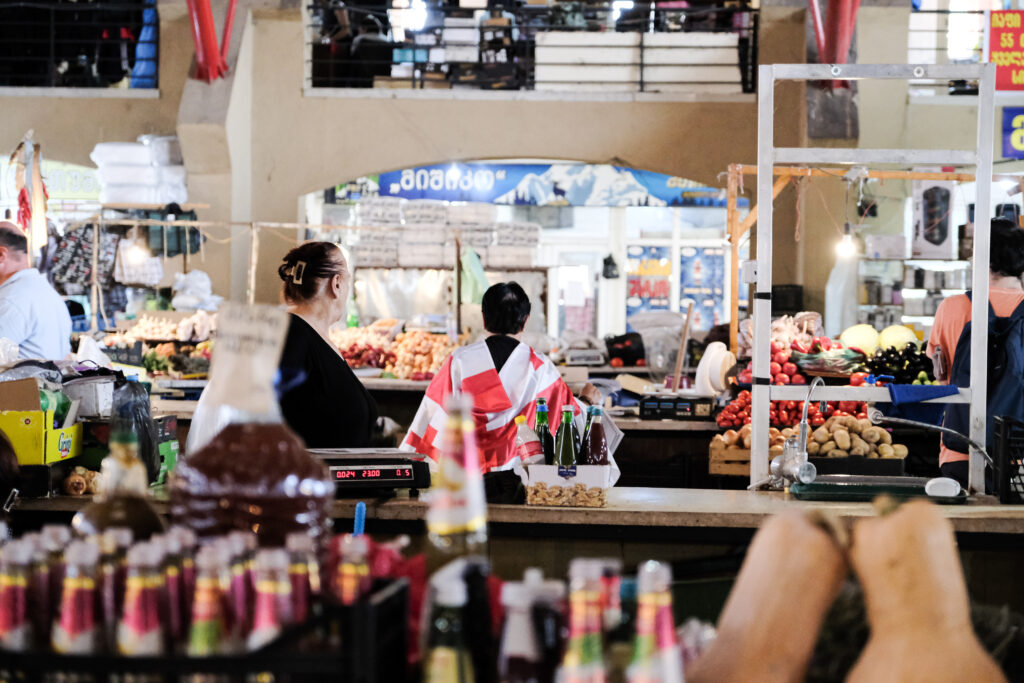
Accompanied by activists, the families have been distributing newspapers either published by prisoners from their cells or containing letters from those detained during the 2024–2025 protests.
As months of uncertainty followed the initial tumultuous weeks of the protests, and demonstrators struggled with apathy and exhaustion, family members of those in jail – wearing banners and shirts with the detainees’ portraits – emerged as stubborn voices of resistance. Over time, the broader public, too, became closely acquainted with the stories of their previously lesser-known fellow citizens.
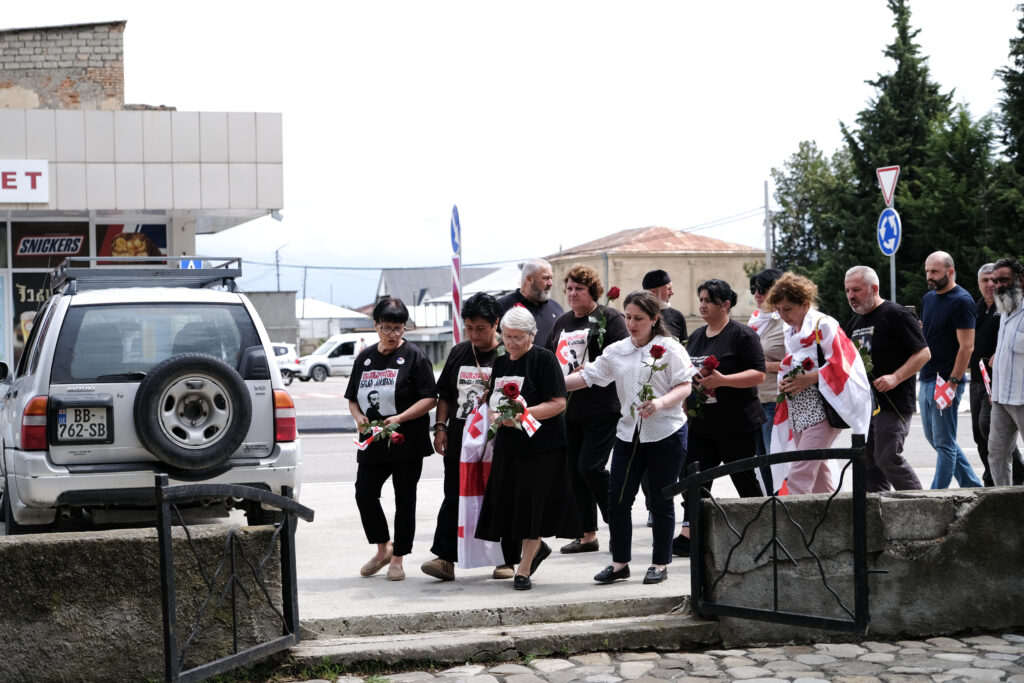
Marina Terishvili, for example, is a grey-haired woman who has drawn attention – and admiration – for her relentless efforts to seek justice, even as those much younger were quicker to step away from the struggle. Terishvili lost one of her sons, Mamuka, in 1992, when a protest rally in support of Georgia’s first president, Zviad Gamsakhurdia, was violently quashed by the Mkhedrioni paramilitary group during a dark phase of civil war and lawlessness in the early years of Georgia’s regained independence.
Her other son, Gia Terishvili, 54, was among eleven protesters detained in December and later sentenced to two years in prison on charges of organizing and participating in a group activity that “disrupted public order.”
“I am truly proud that I raised two heroes,” Marina Terishvili said after attending the court hearing that led to Gia’s sentencing.
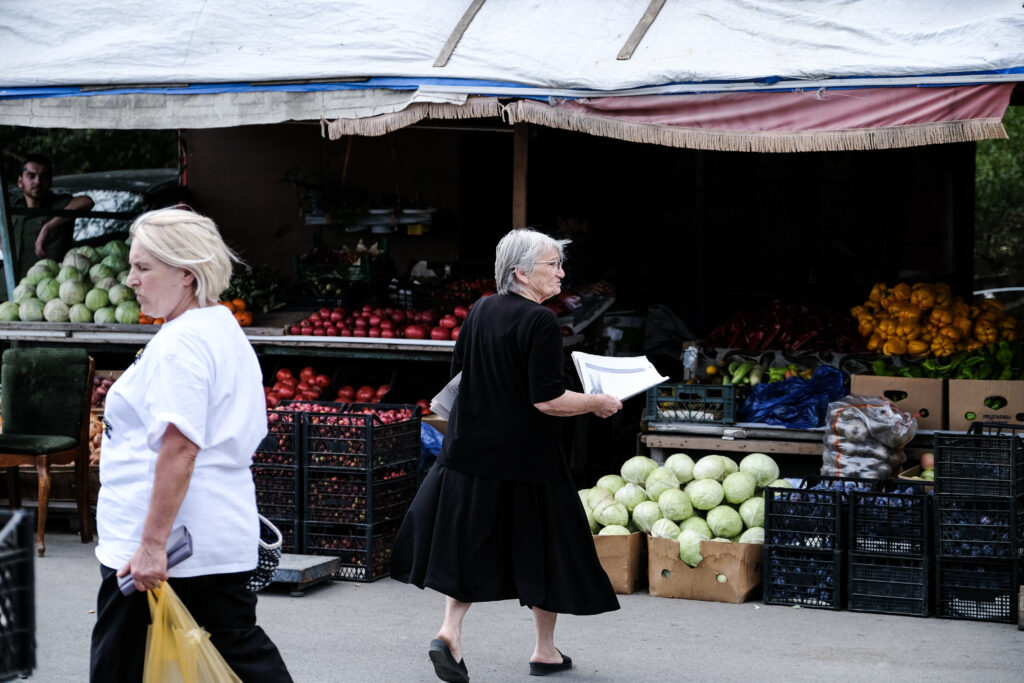
Marizi Kobakhidze was among the earliest to raise her voice and actively rally for the release of detained protesters. Her son, Tornike Goshadze, was one of eight protesters – often referred to as “smiling boys” – found guilty of similar “disruption of public order” charges, following a last-minute reclassification of more serious criminal charges.
Among the “smiling boys” was also Zviad Tsetskhladze, a law student and activist who was 19 at the time of his arrest. Tsetskhladze had led youth protests and organized rallies, first in Batumi and then in Tbilisi. After his detention, his parents, Zurab Tsetskhladze and Nargiz Davitadze, stepped in, rallying supporters to put more pressure on Georgian Dream authorities and not give up too soon.
Cell 101, published by Zviad from prison, has been among the newspapers regularly distributed in Tbilisi and during regional trips. Another paper, Voice of Freedom from Prison, contains letters written by detainees.
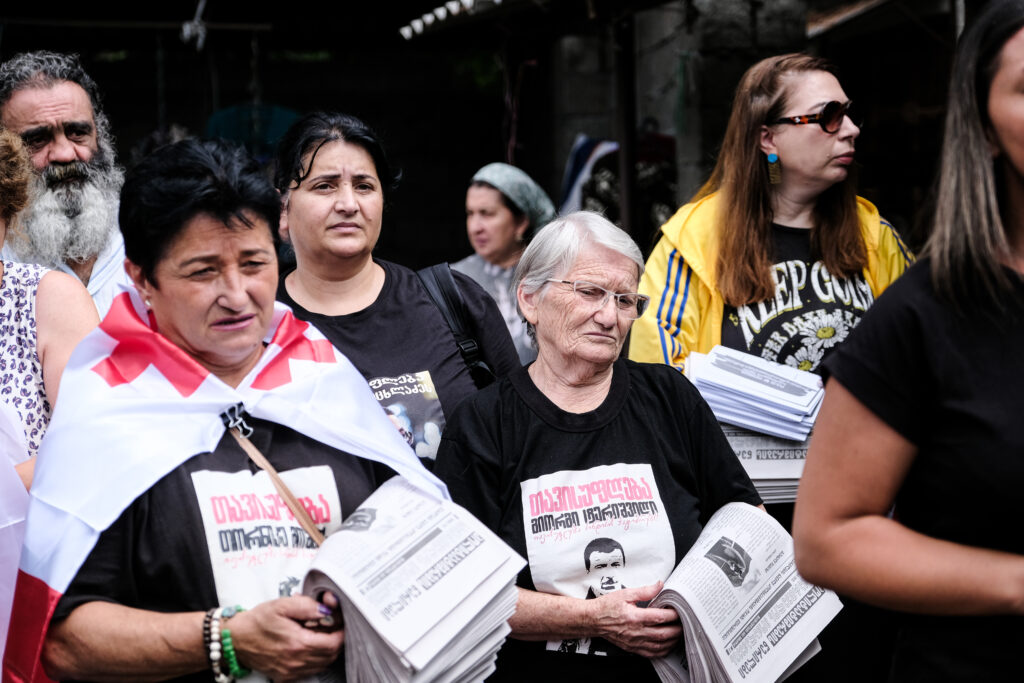
Nani Tsulaia has become another inspiring figure in the resistance. Her foster son, Giorgi Mindadze, received a five-year sentence in one of the protest-related “assault on police” cases. Although bureaucratic obstacles have kept her from visiting him in prison, she remains active on the streets, embodying both a mother’s deep concern and a rare composure even in the hardest moments.
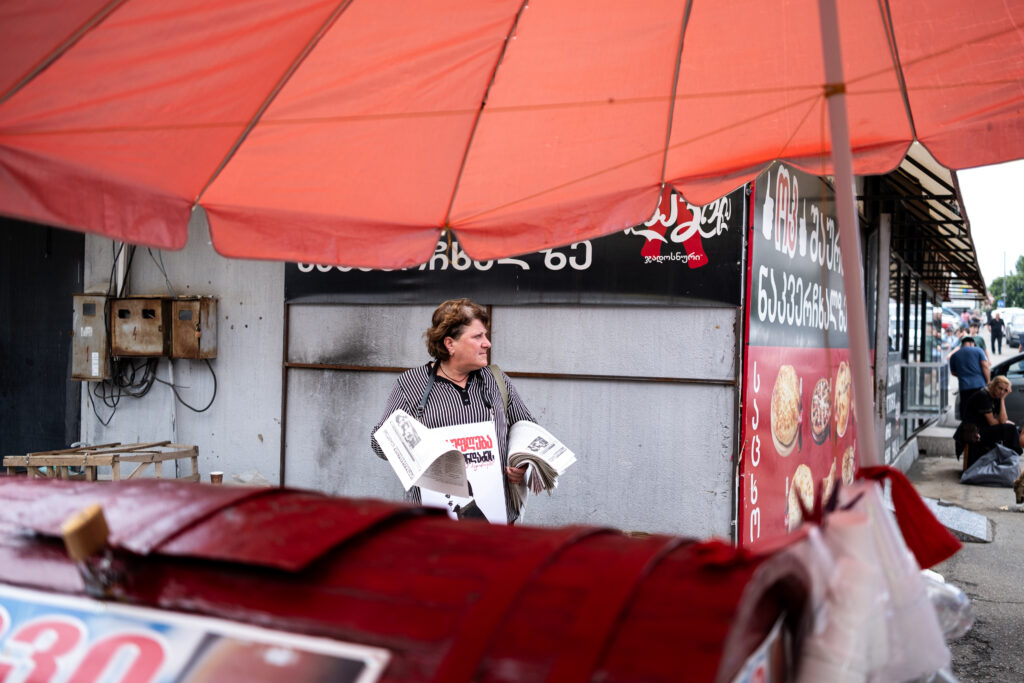
Nor is Tsaro Oshakmashvili a birth mother to Archil Museliantsi, a protester sentenced to four years in prison on allegations of damaging a surveillance camera. Tsaro, 61, and Archil, 29, first met during rallies before his arrest, when Archil confided that he had no family who’d take care should anything happen to him. Since his detention, Tsaro has stepped into that role, carrying banners with Museliantsi’s portrait both in Tbilisi and beyond, and even inspiring Archil to pass university exams from prison.
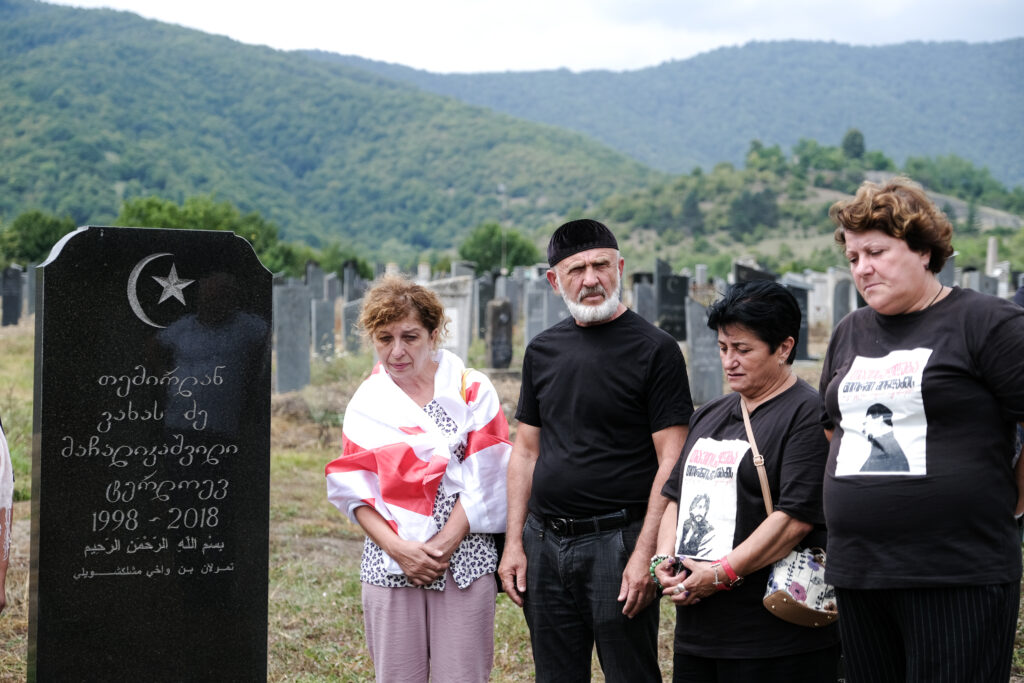
Marina Aptsiauri’s story is different. Her son, Nika Katsia, was arrested on serious drug charges last December, a case he attributed to his activism, but was ultimately one of the only three detained protesters who were acquitted. After his release, Aptsiauri pledged to still tag along with other parents on their newspaper trips, showing solidarity with those still seeking justice.
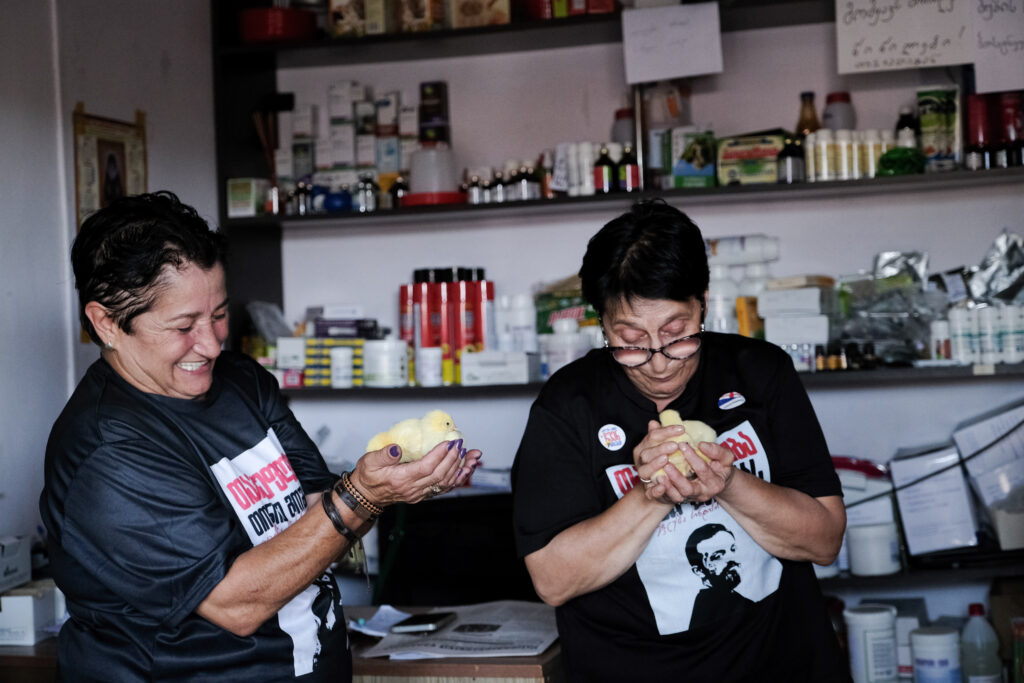
“The parents are mostly met with a friendly, warm attitude from locals,” says Saghiridze, the photographer. “Most people already know the stories of the political prisoners and show solidarity with their parents. If they don’t know, they listen attentively and read the newspaper with great interest.”
Saghiridze notes that there are still moments when some locals act hostile or avoid showing emotions – or being caught on camera. “They are afraid this might put their jobs at risk,” she explains.
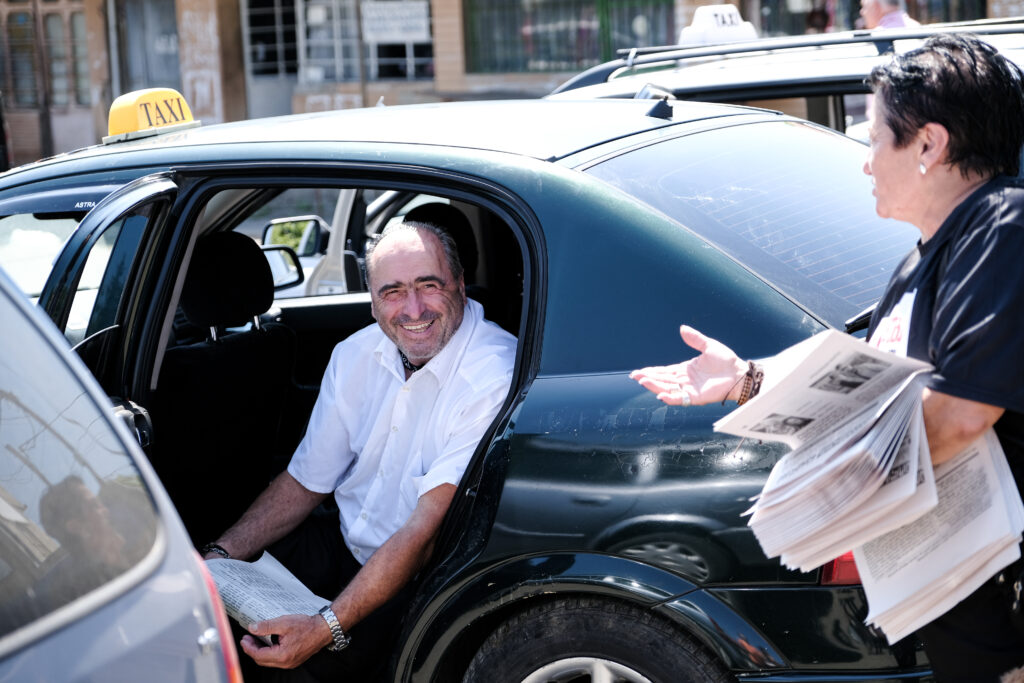
“I try to capture small, often invisible gestures that say a lot,” the photographer says. “It could be the moment someone hands over a newspaper, where support and solidarity are felt in the touch of hands. Or when a market vendor gives products to the parents of political prisoners for free. Or how a little child watches these people with curious eyes.”
The most striking moments, she says, are those when she sees “hope, sorrow, and fight all at the same time.”
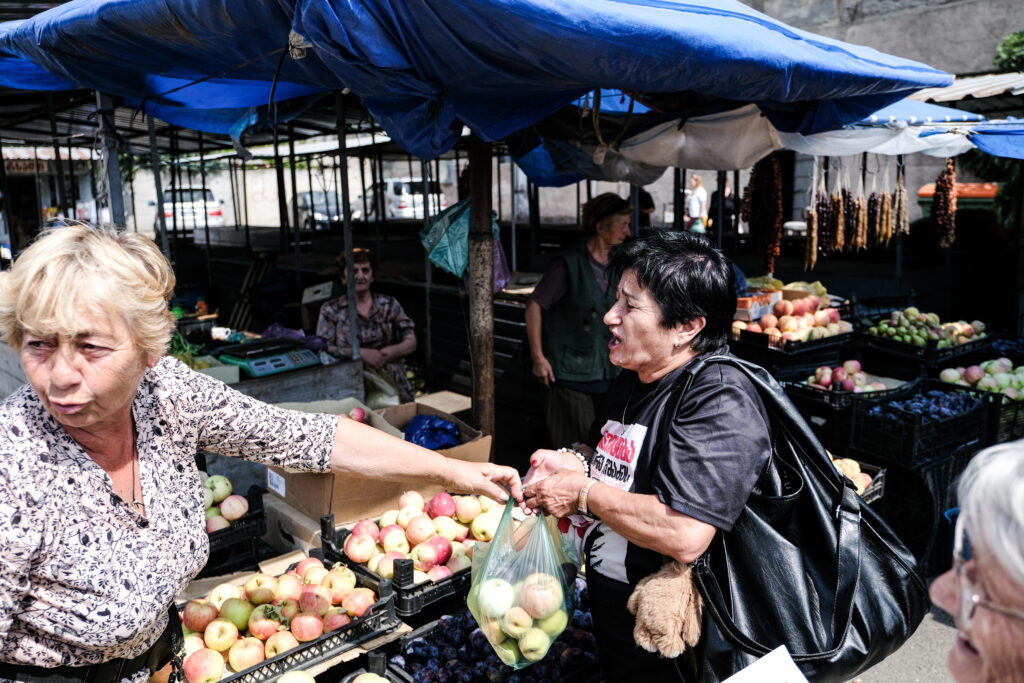
On September 23, the non-stop protests that began on November 28, 2024, reached their 300th day. In less than two weeks, the partially boycotted local elections will take place across Georgia, condemned by critics as a sham. A mass rally has been scheduled for the same day.
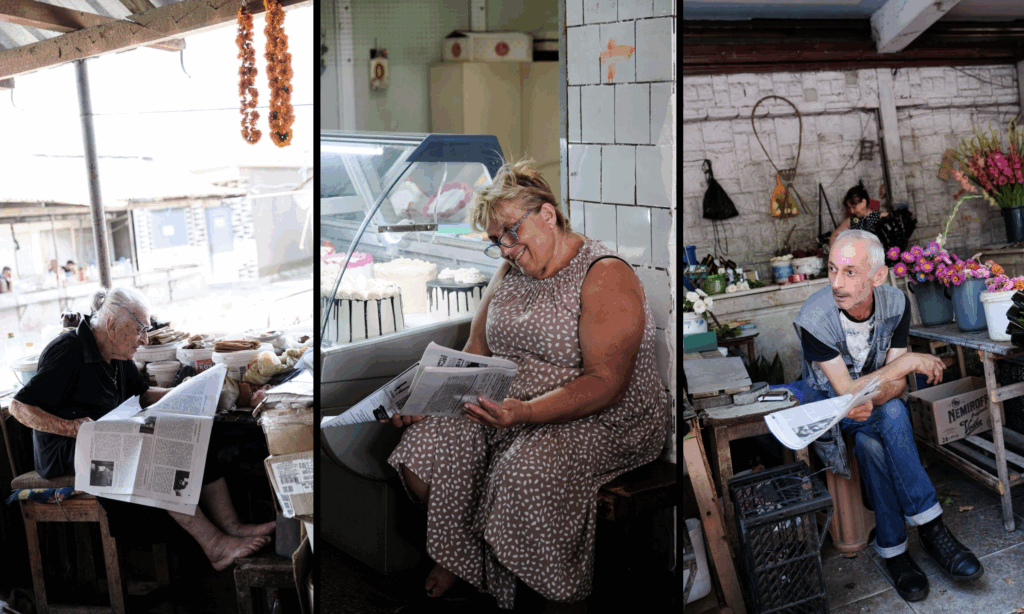
The future is uncertain, but the protests continue. So do the weekly trips of parents and activists who support them, bringing newspapers and, more importantly, direct people-to-people interactions to distant, often forgotten parts of the country.
The trips remain one of the few links connecting an increasingly divided nation, with the divisions only deepening under the ever-growing influence of the ruling party outside Tbilisi, and under the spell of a strong propaganda machine by the ruling party’s mouthpieces.
“Direct communication has clearly shown the importance of constant, right dialogue, mutual understanding, and support,” Nino Saghiridze says.
